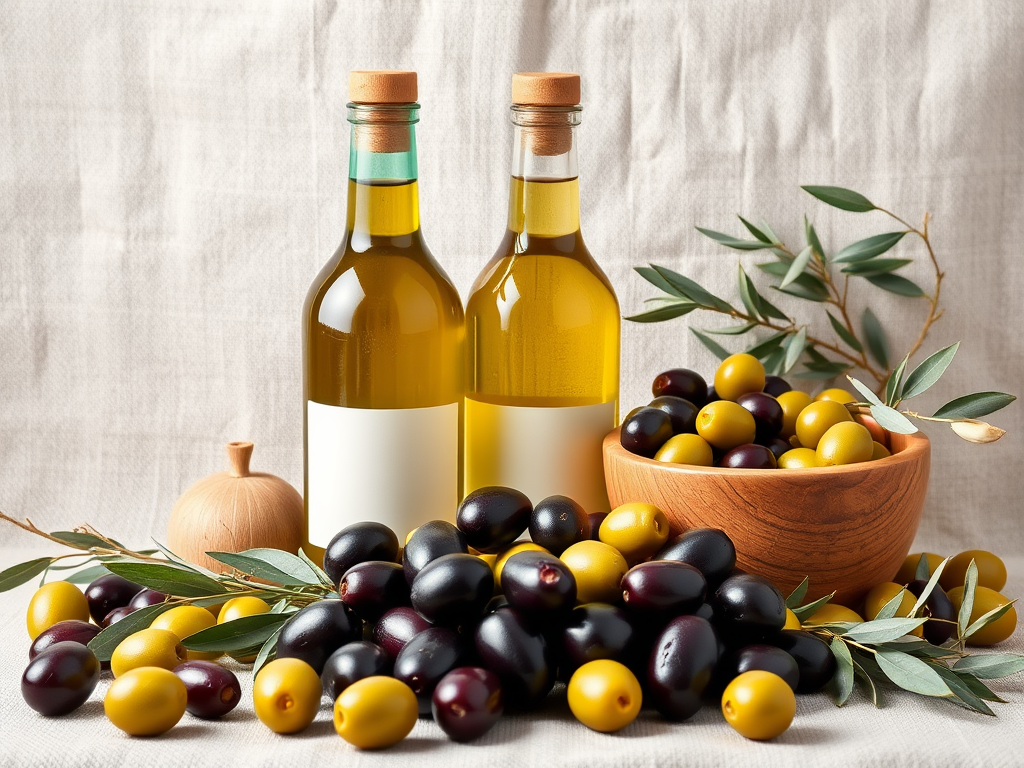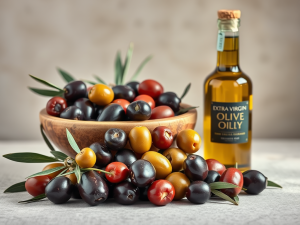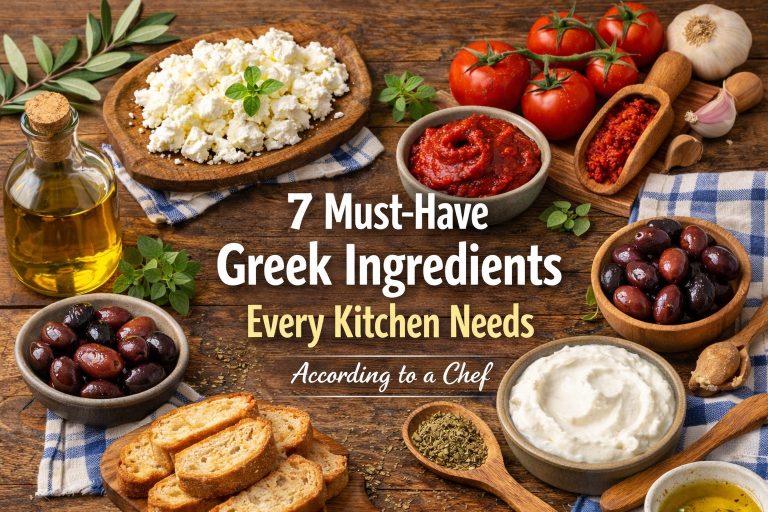
Olives and olive oil are cornerstones of Greek cuisine, deeply embedded in the country’s culture, history, and daily life. From their ancient origins to their modern culinary applications, olives have played a significant role in shaping the flavors and practices of Greek gastronomy. This article explores the historical significance, culinary uses, nutritional benefits, cultural practices, and the role of olives and olive oil in contemporary Greek cuisine.
Historical Significance
The cultivation of olives dates back thousands of years in Greece, with evidence suggesting that olive trees were first domesticated around 6000 BCE. Archaeological findings indicate that olives were a staple in the Mediterranean diet and were used not only for food but also for medicinal and cosmetic purposes. The olive tree is often seen as a symbol of peace and prosperity, and its fruit has been revered in Greek mythology. According to legend, Athene presented the olive tree to the people of Athens, securing her place as the city’s patron deity. This myth underscores the olive’s importance in Greek identity and heritage.
The significance of olives extended beyond mere sustenance; they were integral to trade and commerce in ancient Greece. Olive oil was a valuable commodity, used as currency and traded across the Mediterranean. The oil’s versatility made it a staple for cooking, lighting lamps, and even anointing athletes in the ancient Olympic Games. As such, olives and olive oil were not only vital for daily life but also crucial to the economic and social structures of ancient Greek civilization.
Culinary Uses
In Greek cuisine, olives are not just ingredients; they are a way of life. There are numerous varieties of olives grown in Greece, each bringing its unique flavor profile and texture. Some of the most popular types include:
- Kalamata Olives: Known for their deep purple color and almond shape, Kalamata olives are often enjoyed whole in salads or as part of a meze platter. They have a rich, fruity flavor that pairs well with many dishes.
- Green Olives: These olives, harvested before they ripen, have a firmer texture and a slightly bitter taste. They are commonly used in tapenade or as a garnish for various dishes.
- Koutsourelia Olives: These small, green olives are often pickled and praised for their intense flavor. They are commonly found in traditional Greek salads.
Olive Oil: The Liquid Gold
Olive oil is often referred to as “liquid gold” in Greece, and for a good reason. It is the primary cooking fat in Greek households, prized for its flavor and health benefits. Extra virgin olive oil, made from the first pressing of olives, is particularly valued for its rich taste and high nutritional content. It is used in dressings, marinades, and as a finishing touch for many dishes.
In addition to its culinary applications, olive oil is an essential component of traditional Greek dishes. For instance, it is drizzled over fresh salads, used in the preparation of stews like moussaka, and is a key ingredient in the popular dish doma, which consists of grape leaves stuffed with rice and herbs. The distinct flavor of high-quality olive oil enhances the taste of these dishes, making it a staple in both home cooking and fine dining.
Nutritional Benefits
Olives and olive oil are rich in monounsaturated fats, antioxidants, and anti-inflammatory properties. They contribute to a healthy Mediterranean diet, which is associated with numerous health benefits, including reduced risk of heart disease and improved longevity. The consumption of olives can also support digestive health, thanks to their fiber content.
Research has shown that the monounsaturated fats found in olives can help lower bad cholesterol levels while increasing good cholesterol. Additionally, the antioxidants, such as vitamin E and polyphenols, play a crucial role in protecting the body from oxidative stress and inflammation. These health benefits are a significant reason why the Mediterranean diet, which emphasizes the consumption of olives and olive oil, is often recommended by nutritionists and health experts.
Cultural Practices
In Greece, olives are celebrated during harvest festivals, where locals come together to pick olives and produce olive oil. This communal activity fosters a sense of community and connection to the land. Traditional Greek meals often feature olives as part of the meze, a selection of small dishes served with drinks, showcasing the importance of sharing food in Greek culture.
The practice of making olive oil is steeped in tradition, with families often passing down their methods through generations. Many villages in Greece still rely on traditional techniques for olive harvesting and oil production, emphasizing the connection between the land and the people. This cultural heritage is evident in local festivals that celebrate the olive harvest, showcasing the importance of olives in Greek life.

Olives in Contemporary Greek Cuisine
Today, olives and olive oil continue to play a vital role in both home cooking and restaurant menus across Greece. Chefs are increasingly experimenting with innovative ways to incorporate olives into modern dishes, blending traditional flavors with contemporary techniques. For example, olives may be used in gourmet tapenade, infused oils, or even desserts, showcasing their versatility and adaptability.
Furthermore, the global popularity of Greek cuisine has led to increased interest in high-quality Greek olives and olive oil outside of Greece. Specialty stores and online markets offer a variety of Greek olive products, making it easier for people around the world to experience the rich flavors of Greek gastronomy.
Conclusion
Olives and olive oil are more than just culinary staples in Greek cuisine; they represent a rich heritage that spans millennia. Their versatility, health benefits, and cultural significance make them essential to both everyday meals and festive occasions. As Greece continues to embrace its culinary traditions, olives remain at the heart of its vibrant food landscape, connecting generations through their timeless flavors and stories. Whether enjoyed in a simple salad or as part of a lavish feast, olives will forever be celebrated as a symbol of Greek identity and culinary excellence.



